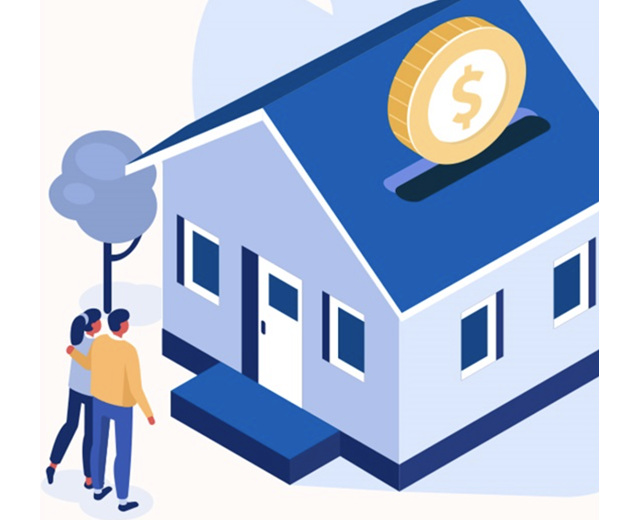Conventional Mortgage Loans: Your Guide to Conventional Home Funding
Conventional Mortgage Loans: Your Guide to Conventional Home Funding
Blog Article
Understanding the Different Sorts Of Home Loan Readily Available for First-Time Homebuyers and Their Distinct Advantages
Navigating the variety of mortgage finance choices offered to first-time property buyers is vital for making educated monetary decisions. Each type of lending, from conventional to FHA, VA, and USDA, presents one-of-a-kind benefits customized to varied customer demands and conditions.
Standard Finances
Conventional finances are a cornerstone of home mortgage financing for newbie homebuyers, offering a reliable choice for those aiming to purchase a home. These finances are not insured or ensured by the federal government, which identifies them from government-backed lendings. Normally, conventional car loans require a higher credit history and an extra substantial deposit, commonly varying from 3% to 20% of the acquisition price, depending upon the lending institution's requirements.
One of the considerable advantages of traditional loans is their flexibility. Customers can pick from numerous funding terms-- most generally 15 or three decades-- permitting them to straighten their home mortgage with their financial goals. Additionally, conventional car loans may provide reduced rate of interest contrasted to FHA or VA finances, specifically for consumers with solid credit history profiles.
One more benefit is the lack of upfront home mortgage insurance costs, which are usual with federal government loans. However, exclusive home mortgage insurance coverage (PMI) may be needed if the down repayment is much less than 20%, but it can be eliminated once the customer accomplishes 20% equity in the home. On the whole, standard car loans present a appealing and viable funding choice for first-time buyers seeking to browse the home loan landscape.
FHA Finances
For lots of new homebuyers, FHA finances stand for an available pathway to homeownership. One of the standout attributes of FHA fundings is their low down payment demand, which can be as reduced as 3.5% of the acquisition price.
Furthermore, FHA financings allow for higher debt-to-income ratios compared to traditional finances, accommodating borrowers who might have existing financial obligations. The rate of interest related to FHA financings are often competitive, further enhancing affordability. Customers likewise gain from the capability to consist of specific closing expenses in the finance, which can reduce the ahead of time economic worry.
Nonetheless, it is necessary to keep in mind that FHA loans require mortgage insurance costs, which can raise month-to-month repayments. In spite of this, the overall benefits of FHA loans, consisting of ease of access and reduced first expenses, make them a compelling option for first-time buyers looking for to enter the real estate market. Recognizing these financings is crucial in making informed choices regarding home financing.
VA Loans
VA loans supply a special financing solution for qualified veterans, active-duty solution members, and certain members of the National Guard and Gets. These fundings, backed by the U.S - Conventional mortgage loans. Division of Veterans Affairs, provide a number of advantages that make home possession much more accessible for those that have offered the nation
One of the most substantial benefits of VA car loans is the lack of a deposit requirement, enabling certified consumers to finance 100% of their home's acquisition price. This attribute is particularly useful for novice buyers who might battle to save for a considerable down repayment. Furthermore, VA loans normally come with competitive rates of interest, which can cause lower regular monthly settlements over the life of the finance.
An additional noteworthy benefit is the absence of private home loan insurance policy (PMI), which is frequently needed on standard lendings with low down repayments. This exemption can result in considerable cost savings, making homeownership extra budget friendly. VA finances supply adaptable credit requirements, enabling borrowers with lower credit history scores to qualify even more conveniently.
USDA Loans
Exploring funding alternatives, newbie property buyers may find USDA lendings to be an engaging choice, particularly for those wanting to acquire residential property in suburban or rural areas. The USA Division click for more info of Agriculture (USDA) provides these finances to advertise homeownership in designated rural areas, providing a superb chance for eligible customers.
Among the standout attributes of USDA financings is that they call for no deposit, making it easier for novice buyers to get in the housing market. Additionally, these loans commonly have affordable interest prices, which can result in decrease month-to-month repayments contrasted to traditional financing choices.
USDA car loans additionally include adaptable credit rating needs, enabling those with less-than-perfect credit to certify. The program's income restrictions ensure that assistance is routed towards low to moderate-income families, additionally sustaining homeownership goals in rural communities.
Additionally, USDA finances are backed by the federal government, which lowers the risk for lenders and can enhance the authorization process for debtors (Conventional mortgage loans). As an outcome, new buyers considering a USDA finance might find it to be a accessible and beneficial choice for attaining their homeownership dreams
Unique Programs for First-Time Customers
Many first-time property buyers can profit from unique link programs made to aid them in browsing the complexities of purchasing their first home. These programs typically supply financial incentives, education, and resources tailored to the distinct requirements of beginner purchasers.

Moreover, the HomeReady and Home Possible programs by Fannie Mae and Freddie Mac deal with reduced to moderate-income buyers, supplying versatile mortgage options with lower home loan insurance prices.
Educational workshops hosted by numerous organizations can additionally assist first-time purchasers understand the home-buying procedure, improving their opportunities of success. These programs not only reduce economic concerns yet also encourage buyers with expertise, ultimately assisting in a smoother transition right into homeownership. By discovering these special programs, new property buyers can discover useful sources that make the imagine possessing a home more attainable.
Verdict

Traditional car loans are a foundation of mortgage funding for newbie property buyers, providing a reliable alternative for those looking to purchase a home. These lendings are not guaranteed or ensured by the federal government, which distinguishes them from government-backed loans. In addition, traditional car loans might use lower passion rates contrasted to FHA or VA finances, particularly for debtors with solid credit scores accounts.
In addition, FHA financings enable for greater debt-to-income ratios contrasted to traditional loans, fitting borrowers that might have existing monetary commitments. Furthermore, VA lendings commonly come with competitive rate of interest rates, which can lead to reduce month-to-month payments over the life of the financing.
Report this page